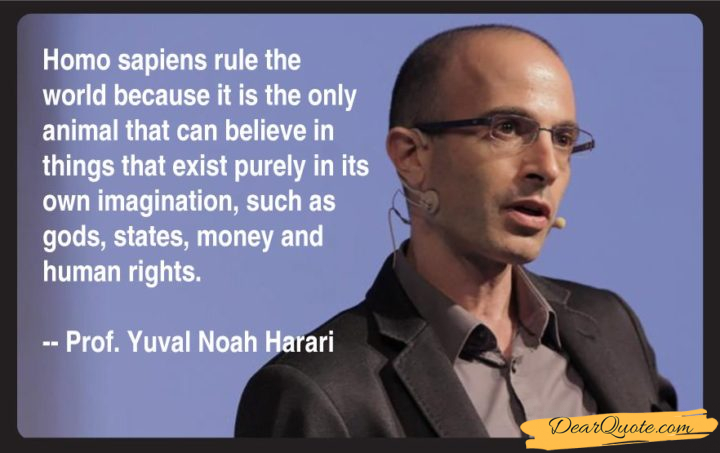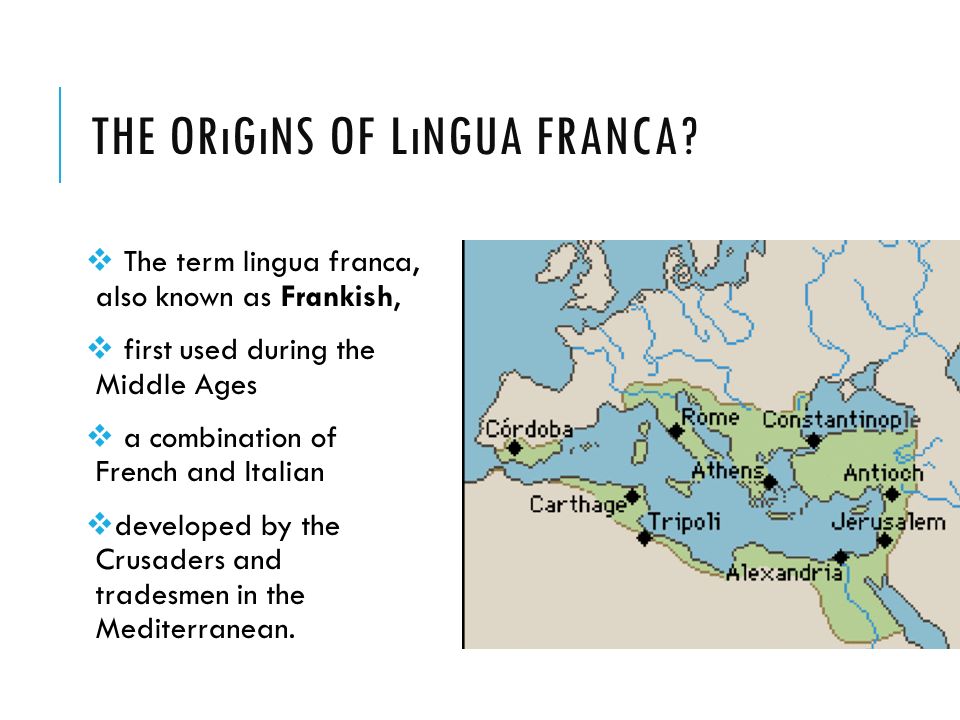(アイキャッチ画像出典:https://dearquote.com/homo-sapiens-rule-the-world-because-it-is-the-only-animal-that-can-believe-in-things-that-exist-purely-in-its-own-imagination-yuval-noah-harari-882×555/)
つい先日インディア・トゥデイ・コンクラーヴェ2018という国際会議が開かれていた。そのなかで、おなじみの歴史学者ユヴァル・ノア・ハラリ氏が行った講演(2018.3.10)を英日対訳でお届けしよう。
今回の講演はAIやバイオエンジニアリングといった技術的話題ではなく政治がメインテーマだ。ナショナリズムが21世紀の課題解決に有効な枠組みか否かを論じている(英文テキストはyoutube動画からの文字起こし、和文はトコシエによる翻訳、見出しは読みやすさを考え独自に追加)。
Globalisation Over Nationalism
グローバル化時代のナショナリズム
So what I want to talk to you today is about the role of nationalism and nations in the world of the 21st century. Until a short time ago it seems that nationalism was waning and that humankind is on a path to becoming a single global peaceful community.
But now nationalism is making a comeback and not just in some remote corners of the world but also in the hegemonic powers of Western Europe, of North America, of Russia, China and India. What does the revival of nationalism signify?
Does nationalism offer real solutions to the unprecedented problems of the 21st century? Or is it a kind of escapist indulgence that might doom humankind and the entire ecosystem to disaster?
今日は21世紀の世界におけるナショナリズムと国家の役割についてお話ししたいと思います。ちょっと前まで、ナショナリズムは衰え、世界はグローバルで平和なひとつのコミュニティに向け進んでいるように見えていました。
ところがいまや、辺境地域のみならず、西欧や北米の大国でも、ロシアや中国やインドでもナショナリズムが息を吹き返しています。ナショナリズムの復権は何を意味するでしょうか?
21世紀の前例のない諸問題に対する真の解決をもたらすでしょうか?それとも、人類の未来を危うくし地球の生態系に災厄をもたらすでしょうか?
ナショナリズムは最近の産物
Before addressing this question we need to dispel a very widespread myth. Contrary to what many people think, nationalism is not a natural and eternal part of the human psyche or of human biology. It’s actually a very very recent evolutionary development. Homo sapiens is a social animal by nature but for millions of years until about 5000 years ago humans lived in small intimate communities in which everybody knew everybody else.
この疑問に答えるには世界中に流布している「神話」を払拭する必要があります。多くの人々の常識に反して、ナショナリズムは人間の精神や生理にとって自然なものでも永遠のものでもありません。つい最近の進化の産物なのです。ホモ・サピエンスが本質的に社会的な動物であるのは確かですが、数百万年の進化史のうち、5000年より以前は顔見知りしかいない小さなコミュニティに暮らしていたのです。
Only in the last 5,000 years or so these small clans and tribes started to form larger and larger groups until they formed large nations comprising millions of strangers where the basic characteristic of the ancient clans and tribes was that they were intimate communities everybody really knew everybody else.
5000年前から、この習性を残したまま人類は仲間を拡大し、とうとう何百万人もの見知らぬ他人と同じグループを形成するようになったにすぎません。
国民は想像上の産物
Nations are communities of strangers: you don’t know most other people in your nation. I don’t know the 8 million other people who share my Israeli citizenship. You don’t know the 1.2 or 1.3 billion people who share your Indian citizenship, they are your brothers and sisters and friends only in the imagination.
国家は他人同士の集まりです。どの国民も同胞の全員を知っているわけではありません。私はイスラエルの市民権を分かち合う800万人の人を知らないし、みなさんはインドの市民権を共有する12~13億人の人を知りません。国民とは想像上の兄弟、姉妹、友だちに過ぎません。
国家の発生した理由と経緯
So if nationalism and nations are not natural to humans, why and how did they appear?
They appeared not a long time ago because nations can solve large-scale problems that small tribes cannot solve and nations can utilize large scale opportunities that small intimate clans cannot utilize. The first big groups of people, kingdoms and nations appeared about four to five thousand years ago in the Indus Valley, the Nile Valley, the Euphrates Valley, and the Yellow River Valley.
ナショナリズムや国家が人間にとって自然なものでないなら、それはなぜ、どのように生まれたのでしょうか?
みなで団結すれば、小さな部族では解決できない大きな問題が解決でき、小さな集団では享受できない大きなチャンスを掴めるから国をつくったのです。そうして4、5000年前、国とか王国とか呼ばれる集団がインダスの谷に、ナイルの谷に、ユーフラテスの谷に、黄河の谷に生まれました。
Until that point those river valleys were populated by many small, independent tribes the river was the lifeblood of these tribes. It was the source of the prosperity but it was also a source of great danger. If there was not enough water in the river there was drought and people starve to death. If there was too much water in the river then the river overflowed flooding villages and fields and granaries and again people starve to death. There was nothing that the small independent tribes could do about these problems because each tribe commanded just a very small part of the river, it could mobilize only a few hundred people to dig canals and build dams and so forth.
それまで、これらの川の谷には小さな独立した部族がてんでんばらばらに住んでいるだけでした。川は文字通り部族社会の生命線でした。それは繁栄の源であると同時に、命を脅かす危険でもありました。川に十分な水がなければ干ばつになって人々は餓死します。川に水が溢れれば洪水が起きて村や畑や穀倉地帯に溢れ、集落が滅びます。小規模の部族がばらばらに川のごく一部を使っているだけなので、大きな災害に打ち勝つ手だてがありませんでした。せいぜい数百人で運河を掘るか、ダムをつくるしか方法がなかったのです。
This was one of the main reasons why the small tribes coalesced to form large kingdoms and nations, and these nations now commanded thousands of kilometers in millions of people and they could build the large dams and canals and reservoirs and granaries that helped humans control the river and that increased the security and prosperity of the people who lived in these kingdoms and in these nations.
これが小さな部族が合併して大きな王国や国家を形成した主因のひとつです。現代の国家なら数千キロの範囲で何百万人もの人々を差配して、大きなダムや運河、貯水池や穀倉地帯をつくって水を管理し、生活の安全や繁栄を増進させることができます。
国家は人類の安全と繁栄の礎
And indeed for thousands of years nations provided people with many essential services and with a greater degree of security and of prosperity. The milder forms of nationalism and patriotism have been among the most benevolent of human creations because they enabled cooperation between strangers: They enabled me to care about people that I never met and never will meet and to cooperate effectively with them towards common goals and this was very good.
実際、この数千年間、国家は多くの基本サービスを提供し、人類の安全と繁栄に貢献してきました。穏やかなナショナリズムや愛国心は人間のつくったもののなかで最も愛に満ちた創造物といえます。私は国家を通じて自分が一度も会ったことがなく、将来も会わない人々をケアでき、共通の目標に向けて協力することができます。これはとてもうまくいきました。
Some people imagine that, without nationalism, we will all be living in a peaceful paradise, but actually far more likely, without nationalism, we would be living in tribal caves. And indeed, if you look today at the world, then the most peaceful and prosperous nations of the world like Sweden and Switzerland and Japan, they have a very strong sense of nationalism. Countries that don’t have a strong sense of nationalism like Afghanistan and Somalia and Congo are usually chaotic and poor.
なかにはナショナリズムさえなければ、人間は平和な楽園に住んでいたはずだという人もあります。しかしナショナリズムがなければ、いまだに人類は部族社会を営み、洞窟に暮らしていた可能性の方が高いでしょう。今日の世界で最も平和で豊かな国々は、スウェーデンやスイス、日本のようにどこも非常に強いナショナリズムを持っているではありませんか。逆にアフガニスタンやソマリア、コンゴのようなナショナリズムが希薄な国は、一般に混乱し貧困にあえいでいます。
「国家」主義は21世紀の問題解決にも有効か?
So the key question to ask about the role of nations and nationalism in the 21st century is whether nations are still the right framework to address our main problems and opportunities and to ensure the security and prosperity of humans.
それでは、人類が大きな課題に直面し、大きなチャンスをものにする上で、今後も国家という枠組みは最適なものであり続けるでしょうか?未来も人間に安寧と繁栄をもたらし続けるでしょうか?これが21世紀における国家とナショナリズムの役割に関して鍵となる問いです。
And the answer is no.
答えは「そうはならない」です。
地球自体をひとつの国として考えるべき時代
Nations are no longer the right framework. Nations today in the 21st century are like the small independent tribes that lived along the Indus Valley five thousand years ago. We all humans now on earth live along a single global river: a river of information, of scientific discoveries, and of technological inventions.
This river is the source of our prosperity but it is also a great threat to human civilization into the survival of the human species. No nation can hope to regulate this river of information and inventions by itself.
国家はもう正しい枠組みではありません。21世紀の国家は5000年前インダス河沿いに点在していた部族社会と同じで、地球上の人類はグローバルな大河に沿って暮らしています。情報の大河、科学的発見の大河、革新技術の大河を無視して生きることはできません。
この大河は私たちの繁栄の源であると同時に、人類の存亡を左右しかねない一大脅威でもあります。 いかなる強大な国家も単独でこの情報と革新の大河を規制する力を持ちません。
地球レベルの3つの課題:核、環境、破壊的技術
All the big challenges we now face are global in nature, and therefore demand global solutions. These are the nuclear challenge, the ecological challenge, and the challenge of disruptive technologies.
人類がいま直面している大問題は本質的にグローバルなものであり、そうであればグローバルに解決する以外ありません。ここでは核の脅威、環境への脅威、破壊的技術の脅威という3つの課題について考えてみましょう。
核の脅威
So let’s start by looking at the nuclear challenge which is the most familiar challenge to us because it has been with us since 1945. Since the 1950s and 60s, it has become very clear that no single nation can protect itself or the world against the nuclear danger.
はじめに1945年以来、ずっと馴染みのある核問題から見ていきます。1950年代から60年代にかけて、どんな大国も単独で、自国や世界を核の危険から守れないことがわかりました。
During the Cold War many people believed that humankind is simply incapable of rising up to the challenge of nuclear weapons, and they thought that sooner or later the Cold War will turn into a very hot nuclear war which will destroy human civilization, and much of life on Earth.
冷戦時代、多くの人が、人類は核兵器の挑戦に立ち向かえないと諦めていました。早晩、冷たい戦争は人間文明を破壊する灼熱の戦闘に切り替わり、生命のほとんどが死に絶えるだろうと思っていたのです。
As we all know this did not happen. Humankind managed at least until today to prevent nuclear war, and the Cold War actually ended peacefully. But this was not due to the actions of a single nation like the United States, it was due to the collective action of many nations the U.S. and the Soviet Union and China and India and the non-aligned movement, they all contributed to changing the most fundamental rules of geopolitics.
でも、みなさんご承知のように、そうはなりませんでした。少なくとも現時点まで、人類は核戦争を起こさず、冷戦を平和裏に終わらせました。それは米国が単独で行ったことではなく、米ソ、中国、インドなどの自発的、集合的行動の結果です。これらの国すべてが地政学の最も基本的なルールを変えることに貢献したのです。
For thousands of years war seemed to be an inevitable and natural part of international relations. War was the standard tool that every country used in order to advance its interests but since 1945 thanks to the combined actions of many nations war has been declining.
何千年もの間、戦争は国際紛争の不可避かつ自然な解決手段でした。国益の増進に欠かせない手段であったのです。しかし1945年以来、多くの国々が協力する仕組みができ、戦争は年々減少していきました。
戦争手段の非標準化
Since 1945 there has not been a single war between great powers, few borders have been redrawn through naked aggression and many countries not all countries but many countries simply stopped using war as a standard political tool.
1945年以降、大国間の戦争は一度もなく、露骨な侵略によって国境の引き直しが行われることはほとんどありませんでした。多くの国が戦争を当たり前の政治手段として使わなくなったのです。
In 2017 last year despite horrendous conflicts in some hotspots like Syria and Yemen and Ukraine, actually fewer people died in 2017 from use of violence than from obesity or car accidents or suicide for the first time in history.
2017年、シリア、イエメン、ウクライナなど数カ所のホットスポットでおぞましき紛争があったにもかかわらず、歴史上初めて、戦争で死ぬ人数より、肥満や自動車事故や自殺で死ぬ人数が大きくなりました。
You are now your own worst enemies. You have a greater chance of killing yourself statistically than a chance of being killed by any soldier or terrorist or criminal. Sugar is now a greater danger than gunpowder, and you’re more likely to die from drinking too much coca-cola than from being blown up by Al Qaeda, and this is all very good news. But there is no insurance; there is no guarantee that this will continue we have to safeguard this amazing achievement in the coming decades.
賢明さと愚かさの共存
いまや人間の命を脅かす最大の敵は自分自身といえるほどです。統計的にいうと、兵士やテロリストや犯罪者に殺される確率より、自分自身が原因で死ぬ確率が高く、火薬より砂糖の方が命の危険に結びつきます。アルカイダの自爆テロで死ぬ確率より、コカ・コーラを飲み過ぎて死ぬ確率の方が高いのです。なんというグッドニュースでしょう。しかし今後も未来永劫この喜ばしい傾向が続いていく保証はありません。
The reason that humankind avoided nuclear war and that war in general declined, it wasn’t because some God came to our help, it wasn’t because of some divine miracles; it was because of human wisdom, humans making wise and good decisions. But there is no guarantee that we’ll continue to make wise decisions, we are, at least some of us and some of our leaders, might start making very stupid decisions. You should never underestimate human stupidity.
人類が核戦争を避け、戦争全般を退けて始めたのは、神が人間に救いの手を差し伸べたからではなく、神がかった奇跡があったためでもありません。それは人間の叡智、人間が賢明で正しい決断の賜物です。しかし、人間が今後も賢明な判断を行う保証はなく、私たちには、少なくとも一部の指導者や人間には、非常に愚かな意思決定を行う危険があります。人間の愚かさを舐めてはいけません。
I can tell you that human stupidity has been one of the most powerful forces in history and it is still a very powerful force. So in order to ensure the survival and prosperity of human civilization in the 21st century, we need to continue privileging the prevention of nuclear war over the interests of any one particular nation.
人間の愚かさは歴史上最も強力な力のひとつであり、いまも非常に強力な力であるといえます。したがって21世紀、人類文明を確実に存続させ繁栄に導くには、特定の国家の利益より核戦争防止の恩恵を優先し続ける必要があります。
Zealous nationalists who cry my country first, my country is the most important, they should ask themselves how can your country do it by itself without the help of a robust system of international cooperation; how can one nation protect itself and the world from nuclear war?
It cannot.
自国第一主義を掲げ、国益の重要性を叫び、る熱狂的なナショナリストの人たちはこう問うべきです。厚く張り巡らされた国際協力システムの助けなしに、国家単独で国益を実現できるのか、あるいは国際協力なくして各国は核戦争の脅威から身を守れるのか、と。
できるはずがないのです。
環境への脅威
The second big global challenge that we are facing is the ecological challenge. We are destabilizing the ecological system to such a degree that we now face the danger of climate change and of ecological collapse.
第2の大きな世界的課題は環境問題です。人類の活動はいま気候変動や生態系へのダメージにより、地球環境全体を不安定化させています。
For thousands of years homo sapiens proved itself to be an ecological serial killer. We have been responsible for the extinction of numerous animals and plants and other organisms. Now we are putting in danger the survival of our own species as well ahead of much of life on Earth.
この数千年間でホモサピエンスは生態系を殺し続ける殺人者であることが判明しました。すでに動植物はじめ無数の生命を絶滅に追いやってきました。そしていま私たちが存続を脅かしている生物種のリストには人類自身が付け加えられています。
And whereas nuclear war is just a future potential that might happen but not yet, climate change and ecological collapse are our present reality. It is already happening all around us and if things continue in the present course, in 50 years it might be impossible to live in Mumbai either because the Indian Ocean will rise and swallow up much of the city, all because it will be so hot that nobody could live here at least not in the hot season of March, April, and May. And this is something that no single nation, however powerful it may be, can prevent by itself because nations are not ecologically sovereign.
核戦争はまだ起きていない可能性に過ぎませんが、気候変動や生態系の破壊はすでに現実化した危機です。このままのペースをあと50年続ければ、インド洋の水位が上昇して岸を呑み込み、ムンバイには人が住めなくなるでしょう。少なくても3~5月の暑い時期は誰も住めなくなります。これはどんな強大な国家でも太刀打ちできない問題です。生態系主権などというものはありえないからです。
India for example is a very powerful nation but it is not an independent nation when it comes to the ecology. Ecologically it is dependent on what other countries are doing. There are many things that the Indian government can do to help slow down or prevent climate change. It can raise taxes on carbon emissions. It can encourage the switch from fossil fuels to renewable energy. It can invest in research and development in the relevant field. But all these good policies, if they are adopted only by the government of India and China, Russia, the U.S. and so forth, continue with business as usual, then Mumbai will still be destroyed. To save itself from ecological disaster, there is a need for global cooperation.
例えばインドは非常に強力な国ですが、エコロジー的には独立した国家ではないのです。他の国の活動に依存せざるを得ないからです。インド政府が気候変動の緩和や防止のためにできることはたくさんあります。炭素排出量に対する課税の強化も可能でしょうし、化石燃料から再生可能エネルギーへの転換も可能でしょう。関連分野の研究開発への投資を拡大することもできます。しかし、インド、中国、ロシア、米国などの政府だけで良い環境政策を採用しても、他の地域がいままで通りならムンバイはやはり水没してしまいます。環境災害から身を守るには地球規模の団結が必要になります。
破壊的技術の脅威
But the biggest challenge of all is probably the third challenge of technological disruption. In the coming decades artificial intelligence and bioengineering are going to create enormous new opportunities as well as enormous new problems.
しかし核や環境にも増して脅威なのは、第3に挙げた破壊的技術の到来です。人工知能とバイオエンジニアリングの分野に限っても、今後数十年の間に巨大なビジネスチャンスが生まれると同時に、とんでもない規模の問題が生まれるでしょう。
To give a few examples, one prominent example is that the rise of artificial intelligence might completely disrupt the global job market. AI and computers and robots are expected to outperform humans in more and more jobs, and in more and more tasks.
例えば、人工知能が普及すると、世界の労働市場が壊滅的被害を受けるかもしれません。AIやコンピュータやロボットは、今後、さまざまな業種の、あらゆる仕事で人間の能力を上回ると考えられます。
無用者クラスの誕生?
Billions of people might be pushed out of the job market and we will see the creation of an enormous new class―the useless class. Just as the Industrial Revolution in the 19th century created the urban working class, the automation revolution of the 21st century might create the useless class. They are not useless from the viewpoint of their mother or husband or children, no human is ever useless from the viewpoint of their loved ones. But useless from the viewpoint of the economic and political system. We might have millions hundreds of millions of people with no economic value and therefore also no political power, and this is extremely dangerous. There are all kinds of ideas what to do about this.
何十億という人々が仕事を奪われ、無用者クラス(Useless Class)という新たな階級が生まれる可能性があります。19世紀の産業革命が都市の労働者階級を生んだように、21世紀のオートメーション革命が無用者クラスを生むのです。母親や夫や子供の視点から、つまり愛する人々の視点から無用な人など存在しません。しかし政治経済的な観点から無用な人が生まれるのです。何億もの人々が経済的価値ゼロ、政治的価値ゼロとなれば非常に危険な社会になります。この事態にどう対処するか、様々な方策が検討されています。
ベーシックインカムの導入
One popular idea is to have universal basic income: The governments will tax the big corporations which will become very wealthy from all these robots and computers, and use these taxes to provide unemployed workers with basic income or basic services. This is a very interesting idea, but to be effective it must be implemented on a global level, not on a national level, because the automation revolution will have very different impact on different regions and nations.
人気のあるアイデアのひとつが、政府による失業者へのベーシックインカムの支給、基本サービスの提供です。財源はロボットやコンピュータで潤う大企業からの税収です。これは非常に興味深いアイデアですが、オートメーション革命の進展度は地域や国によって大きく異なるため、ベーシックインカムの実効性を高めるには国単位ではなく地球単位で施策を実行する必要があるでしょう。
Some regions like the high-tech hubs of Silicon Valley will become fabulously wealthy even much more wealthy than they are today, but other regions other countries that today depend on cheap manual labor might completely collapse. And then the question is do you think that American voters and taxpayers will agree that the U.S. government will raise taxes on Apple, Google and Microsoft in California and then send the money to Bangladesh to pay unemployed textile workers in Dhaka?
ハイテクのハブになるシリコンバレーのような地域には、いまよりさらにリッチな人々が生まれるかもしれませんが、いま安価な労働力に頼る国地域nの経済は完全に崩壊してしまう恐れがあります。問題は住民の合意です。みなさんは、米国政府がカリフォルニア州のアップル、グーグル、マイクロソフトへの増税収入を、バングラデシュに送金し、ダッカの繊維業系の失業者に手渡すというような政策に、米国の有権者や納税者が同意すると思われますか?
It is extremely unlikely, but if we don’t have a global solution to this problem, then some nations might be very rich but other nations could completely collapse, and the resulting chaos and violence and immigration waves will destabilize the entire world.
ほとんどありえないでしょう。しかし、この問題は地球全体で同意して解決策を講じないと、国家間の経済格差はさらに広がって一部の国は滅亡に追い込まれる恐れがあります。そうなれば、混乱と暴力と移民の波があふれ、世界中を不安定化させるでしょう。
自動兵器の脅威
Another global problem created by the new technologies might be the development of autonomous weapon systems―killer robots. This is one of the most dangerous technological developments, but again no nation can prevent this from happening by itself because no nation has a monopoly over science and technology and the research and development in relevant fields.
自律型兵器システム、俗にいうキラーロボットの進展という面でも、新技術は新たな地球的課題を生み出しています。キラーロボットは最も危険な技術のひとつですが、これもまた国家レベルで制御できる問題ではありません。科学技術を独占できる国もなければ、関連分野の研究開発を一手に取り仕切る国も存在しないからです。
If one nation, let’s say the U.S., places a ban on the development of killer robots, but other nations like China or Russia develop such weapons, then very soon the U.S. itself will feel compelled to break its own ban because it wouldn’t like to stay behind. Especially in a xenophobic dog-eat-dog world, even if one country chooses a high-risk high gain technological path, nobody could afford to remain behind. Everybody will be forced to follow. So if we want to avoid such a race to the bottom that endangers all of humanity, we need some kind of global loyalty and global identity.
もしアメリカがキラーロボットの開発を禁止しても、中国やロシアは開発を続けるかもしれません。そうなれば、アメリカも乗り遅れまいと自ら禁止を解くことになるはずです。とくに、食うか食われるかの外国嫌いが渦巻く世界では、ある国がハイリスク・ハイリターンの技術開発経路を選べば、それを黙って見過ごせる国など存在しません。全人類の命を脅かす泥仕合を避けたいのであれば、何らかの地球規模の約束や共通の目標が求められると思います。
人工知能の脅威
But maybe the most important impact of the new technologies is that they will change the very meaning of humanity, and they will change the basic rules of the game of life.
しかし破壊的技術の最大の特徴は、それが生命の基本原則を踏みにじり、人類という種の本質さえ変えかねない深甚な影響力を持つ点にあります。
For four billion years, that’s a very long time, four billion years nothing fundamentally changed in the basic rules of life. All of life for this immense period was subject to the laws of natural selection, and of organic biochemistry. It doesn’t matter if you were an amoeba, a dinosaur, a banana plant, or a homo sapiens, you were made of organic compounds and you evolved by natural selection. This did not change.
40億年という気の遠くなるような長い歳月、生命の基本ルールは不変でした。数十億年の間、生命のすべては自然選択の法則、有機生化学の法則に従ってきたのです。アメーバだろうと恐竜だろうと、バナナの樹だろうとホモサピエンスだろうと、生命はすべて有機化合物でできていて、自然淘汰に従って進化してきました。この基本は変化しませんでした。
創造主になる人間
But in the coming decades, it is going to change. Science is about to replace natural selection with intelligent design as the chief motto of evolution. Not the intelligent design of some God above the clouds, but our intelligent design, and the intelligent design of our clouds―the IBM cloud, the Google cloud―they will be the driving forces of evolution.
しかし今後の数十年で生命の基本原則が変わります。自然淘汰の法則は人間の科学がもたらす人工設計(インテリジェントデザイン)に置き換わり、生命の進化は人間の意思に委ねられるのです。雲上の神によるインテリジェントデザインではなく、IBMやグーグルのつくったデータクラウド上のインテリジェントデザインが進化の原動力になっていくのです。
And at the same time life is about to break out of the limited organic realm and start spreading into the vastness of the inorganic realm. We are about to create the first inorganic life force after four billion years of evolution.
その過程で生命はこれまでの有機物でできた有限の領域を脱して、広大無辺の非有機的領域へ拡散していくことになります。人類は40億年の進化の後、初めて無機の生命力を生みだしつつあるのです。
And in the process our own species, homo sapiens, is likely to disappear not because we will destroy ourselves, but because we will change and upgrade ourselves into something very different. In a century or two earth will probably be dominated by entities that are far more different from us than we are different from Neanderthals or from chimpanzees.
そうなれば、私たち自身の種ホモ・サピエンスは消滅するかもしれません。それは自分自身を破壊するという意味ではなく、姿かたちを変えて新たな生命体になるという意味です。あと1、2世紀すれば、この地球は、人類がネアンデルタール人やチンパンジーと異なるのとは違う次元で、いまの人類と異なる未知の生命体に支配されているはずです。
Today we still share with Neanderthals and chimpanzees most of our bodily structures, of our physical abilities, and of our mental faculties, our hands, our eyes, or brains of social relations, our emotions, they are very similar to those of other Apes and other mammals. But within a century or two the combination of artificial intelligence and bioengineering will create completely new bodily and physical and mental traits that completely break from the hominid and mammalian mode.
いまの人間は基本的にネアンデルタールやチンパンジーと大差ありません。身体構造、肉体能力、精神構造、手や目、社会関係を司る脳や感情など、どの面でも他の類人猿や哺乳動物と似ているのです。しかし、あと1、2世紀経てば、AIと生命工学の複合技術により、身体的にも精神的にも現人類や哺乳動物とはまったくモードの異なる生物種が創造されることになります。
Consciousness itself might be disconnected from any organic structure or alternatively we might see the decoupling of intelligence from consciousness; and earth will be dominated by entities that are super intelligent, but completely non conscious, highly intelligent computer programs that have no minds, no feelings, and no emotions. So really humankind is about to gain divine powers of creation. We are in the process of becoming gods.
意識そのものが有機構造体から切り離される可能性もありますし、知能から意識が切り離される可能性もあります。その時点で地球上に繁栄しているのは、まったく意識を持たないスーパー知能、つまり、こころや感覚や感情を持たない超知的コンピュータプログラムになるでしょう。その意味で人類は神のごとき神聖な創造力を獲得しつつあるのです。簡単にいえば、私たち自身が神になろうとする過程にあるのです。
神のごとき力をどう扱うのか
And the big question that faces us in the coming decades is what to do with our new godlike powers. We need ethical guidelines and goals, and nationalism just cannot provide us with the necessary guidelines and goals because it thinks on the completely wrong level, it thinks on a different level. Nationalism thinks on the level of territorial conflicts between nations, lasting decades and centuries like the conflict between India and Pakistan or between Israel and the Arab world.
このような神のごとき能力をどう扱うのか、それが今後数十年間で人類が直面する最大の問題になっていきます。いま必要なのは倫理的な指針、倫理的な目標です。そのような状況において、まったく次元の違うレベルでものを考えるナショナリズムでは、必要な指針も目標も設定できないと思います。もしナショナリズムに囚われれば、今後何十年も、何世紀も、これまでと同じようにインドとパキスタンの対立の次元、あるいはイスラエルとアラブ各国の対立の次元に閉じ込められてしまいます。
ナショナリズムの次元では対処できない宇宙的変化
But here we are talking about cosmic processes lasting billions of years. We talk about the end of one cosmic process where organic life has been evolving by natural selection, and the beginning of a completely new cosmic process in organic life shaped by intelligent design.
しかし、いま問題にしているのは、数十億年レベルの根本的変化、いわば宇宙的進化過程の問題です。自然的選択が有機生命の進化を司ってきた、これまでの進化過程が終わって、人類の生んだインテリジェントデザインが有機生命を創造する新たな宇宙プロセスへ移り変わることを論じているのです。
What has Israeli nationalism to say about it, what has Indian or French or Russian nationalism to say about it? Nothing, because they are thinking on the wrong level to address this kind of questions: We need a cosmic not a nationalist perspective.
イスラエルのナショナリズムが役に立つでしょうか?インドやフランスやロシアのナショナリズムが有効でしょうか?問題に取り組む次元が違うのです。私たちに必要なのは偏狭な国家主義の視点ではなく、宇宙主義の視点だからです。
グローバル問題はグローバルに解決するしかない
To conclude them, the basic idea of this talk is very simple that global problems need global solutions, and nationalism just cannot provide us with the necessary solutions.
そろそろ結論に移りたいと思います。私の基本的考えはとても単純で、煎じ詰めれば「地球規模の問題には地球規模の解決策が必要」ということになります。ナショナリズムでは間尺が合わないのです。
愛国心とナショナリズムは別
It does not mean that nationalism has no role to play in the 21st century or that we should abolish all nations and turn humankind into some kind of homogeneous gray goo. There is still plenty of room in the world for the good kind of patriotism that celebrates the uniqueness of my nation and my special obligations towards it.
といっても、21世紀のナショナリズムに何の役割もないわけではありません。すべての国家を廃絶し、人類を均質のグレイグーに変えろとも思いません。世界には、国の独自性を寿ぐ健全な愛国心や、国に対する特別な責務を果たす余地も十分にあります。
ナノテクの “暴走” (無限増殖)が地球生命を脅かす科学想像上の事象。
But we shouldn’t confuse being unique with being supreme. Yes, my nation is unique every nation is unique and I have special obligations towards it, but it doesn’t make my nation supreme and it doesn’t deny the fact that I have obligations towards other groups as well. In order to survive and flourish in the 21st century, humankind must complement their national loyalties with an obligation, with a loyalty toward a global community.
でも独自性と至高性を混同してはなりません。私の国を含めすべての国はユニークであり、国民は全員祖国に対する責務を負っていますが、だからといって愛国心や責務が国の至高性を保証するわけではありません。私は自国に対すると同様、他の国々に対しても責務を負っているという事実は否定しようがないのです。 21世紀、人類が生き残り繁栄を続けるためには、祖国に対する責務と地球社会全体に対する責務を両立させる必要があるのです。
And a person can and should have loyalty simultaneously to many groups. Even today a person can and should be loyal to her family, her profession, her neighborhood, and her nation. So why not add humankind and the planet Earth to this list?
人間は同時に複数の集団に責務を果たすことができます。いまも人は国への忠誠であると同時に、家族や仕事や隣近所に対して忠誠ではありませんか。この忠誠のリストに全人類と地球を含めればいいだけのことです。
Now of course it’s true that when you have multiple identities and multiple loyalties sometimes there are conflicts, but whoever told you that life was simple, deal with it.
異なる立場にあってさまざまな忠誠を果たそうとすれば、ときに利害の衝突に悩まされるでしょう。人生はシンプルだという人には、じゃあ、シンプルに対処してみろといってください。そんなに簡単なことじゃありませんから。
政治のグローバル化しか道はない
It’s difficult. In the past nations evolved because humans had problems they couldn’t solve on the local tribal level. In the 21st century nations are like the old tribes; they are no longer the right framework to address our most important problems. We are already living in a global world, we have global ecology, we have global economy and we have global science, but we still have only nationalist politics.
その昔、人間は小さな集団では解決できない問題を解決するために国をつくりました。21世紀においては国家そのものが昔の部族と同じなのです。国という枠組みでは、もはや人間の最も大事な問題に対処することができません。私たちはすでにグローバルな世界で生きています。グローバルな生態系を意識し、グローバルな経済を営み、グローバルな科学を有しているのに、いまだナショナルな政治しか持てていません。
And this mismatch prevents the political system from countering our main problems. To have effective politics, we need to do either of two things: Either we deglobalize the ecology, the economy, and the science, and make them local, or we globalize our politics.
Now it is obviously, actually impossible, to deglobalize the ecology in the march of science, and it will be extremely costly to deglobalize the economy; therefore the only real solution is to globalize our politics. Thank you.
このミスマッチが、政治システムによる地球的課題への対処を妨げています。政治を機能させるには2つのうちどちらかを選ぶしかありません。ひとつは脱グローバル化の道です。生態系、経済、科学、それらをすべて切り分けてローカルな問題へ還元する方法です。もうひとつは、他の要素に合わせて政治をグローバル化する道です。
たとえ環境問題をローカルレベルに落とし込もうとしても科学の進歩がそれをさせてくれないでしょう。経済を脱グローバル化しようにも、代償が大きすぎて非現実的でしょう。そうであれば、唯一の本物の解決策は政治のグローバル化以外にありません。ご清聴ありがとうございました。
<講演終わり>







コメント